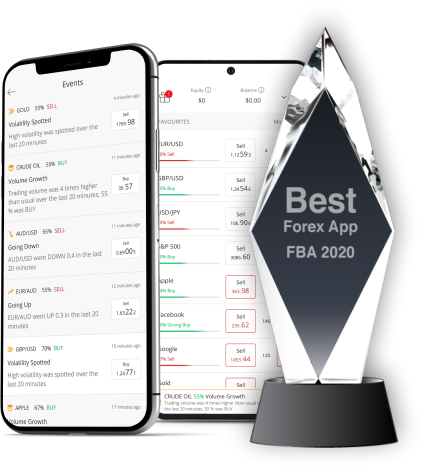
Stocks that are declining in value can be purchased when the stock market crashes. It is a great moment to invest in pharma stocks because they often have low valuations. Moderna, for instance, has dropped about half its value in the last three month due to slower vaccination rates. Intuitive Surgery (ISRG), however, recently reported Street-beating fourth quarter results. However, COVID has had its effect on robotic surgery. Despite Intuitive Surgical’s recent decline, there is still a lot of companies you should consider. As Warren Buffett once said, "be fearful when others are greedy." These companies are worth your time and you can profit from them by buying them at a discount.
Long-term, profitable stocks
There are a number of strategies stock traders can use to profit in market crashes. Traditionally, the stock market has gone up and down. You can buy and sell stocks at great prices during a crash. If you have the patience and the will to wait for a recovery you can buy more stocks while avoiding the inevitable losses. You should be aware of these things before you purchase your next stock.
Buy consumer cyclicals and invest in these companies long-term. This will allow you to buy stocks at a low price. These stocks can be safer investments than the market and often offer more potential for profit than the general market. These stocks are a great choice because they pay a regular dividend and rarely experience a market collapse. In addition, these stocks often have generous dividend yields, which can offset the share price drop.

Diversification
You can invest in the stock exchange in two ways: avoid a major decline or buy high-conviction assets. You may choose to invest in high-tech stocks when the market is doing well and avoid boring sectors. If the market is in decline you might want to consider buying bonds. This will ensure that you don't miss out on major recovery.
An alternative way to diversify your portfolio is to invest in currencies. While cash is a great safe haven, it doesn't provide the kind of return that you need. Currency pairs, for example, have a low correlation. They are less volatile than stocks and won't lose their value simultaneously. While diversification is important, it doesn't guarantee that you will avoid all possible risks.
Tax-loss harvesting
For investors with a diversified portfolio, tax-loss harvesting can help them reposition their portfolios while reducing the overall tax burden. Some robo advisers offer tax harvesting strategies to their customers. The key is evaluating the situation and determining whether tax-loss harvesting makes sense. While tax-loss harvesting may not be recommended for those with the greatest losses, it is possible to use it for holdings that are no longer in line with your investment strategy. This means that if your holdings don't perform well, you can easily replace them with something better.
Another strategy to take advantage tax-free losses is to sell your portfolio. Although it may not be the best strategy for tax, this strategy can still provide diversification benefits. In the example of Devon, he holds a concentrated position in stock A and is planning to sell fund B to reinvest the money in a different mutual fund. The new fund will provide better diversification and lower costs. You can save a lot of tax by selling stocks during market crashes.

Buy on a dip
It's similar to buying stocks in a market downturn when stocks are on the decline. You must be willing to invest cash in order to buy a falling investment to be successful. You should have an emergency fund, a retirement plan, and cash available for everyday expenses. It is important to have individual stocks that you want to own. Keep a list of all the stocks you would like to own, even if you don't have the money to buy them all.
You may have heard that buying stocks on a dip is counter-intuitive to investing strategies such as dollar-cost averaging and price targets. It might make sense to purchase shares at a lower price if you're financially healthy. You may need some self-control and mental calm in order to buy shares at a lower price. You'll be glad that it was done once you get started.
FAQ
What is the purpose of the Securities and Exchange Commission
SEC regulates securities brokers, investment companies and securities exchanges. It also enforces federal securities laws.
What is a Bond?
A bond agreement between 2 parties that involves money changing hands in exchange for goods or service. Also known as a contract, it is also called a bond agreement.
A bond is typically written on paper, signed by both parties. This document contains information such as date, amount owed and interest rate.
The bond can be used when there are risks, such if a company fails or someone violates a promise.
Bonds are often used together with other types of loans, such as mortgages. This means that the borrower will need to repay the loan along with any interest.
Bonds can also help raise money for major projects, such as the construction of roads and bridges or hospitals.
A bond becomes due upon maturity. When a bond matures, the owner receives the principal amount and any interest.
Lenders lose their money if a bond is not paid back.
What is the difference?
Brokers are people who specialize in helping individuals and businesses buy and sell stocks and other forms of securities. They handle all paperwork.
Financial advisors are experts in the field of personal finances. Financial advisors use their knowledge to help clients plan and prepare for financial emergencies and reach their financial goals.
Banks, insurance companies or other institutions might employ financial advisors. Or they may work independently as fee-only professionals.
If you want to start a career in the financial services industry, you should consider taking classes in finance, accounting, and marketing. You'll also need to know about the different types of investments available.
How do you choose the right investment company for me?
A good investment manager will offer competitive fees, top-quality management and a diverse portfolio. The type of security in your account will determine the fees. Some companies don't charge fees to hold cash, while others charge a flat annual fee regardless of the amount that you deposit. Others may charge a percentage or your entire assets.
You should also find out what kind of performance history they have. You might not choose a company with a poor track-record. Avoid low net asset value and volatile NAV companies.
You also need to verify their investment philosophy. An investment company should be willing to take risks in order to achieve higher returns. They may not be able meet your expectations if they refuse to take risks.
What are the benefits to investing through a mutual funds?
-
Low cost - buying shares directly from a company is expensive. Purchase of shares through a mutual funds is more affordable.
-
Diversification is a feature of most mutual funds that includes a variety securities. If one type of security drops in value, others will rise.
-
Professional management - professional managers make sure that the fund invests only in those securities that are appropriate for its objectives.
-
Liquidity- Mutual funds give you instant access to cash. You can withdraw your money whenever you want.
-
Tax efficiency – mutual funds are tax efficient. As a result, you don't have to worry about capital gains or losses until you sell your shares.
-
There are no transaction fees - there are no commissions for selling or buying shares.
-
Mutual funds are simple to use. All you need is money and a bank card.
-
Flexibility: You can easily change your holdings without incurring additional charges.
-
Access to information – You can access the fund's activities and monitor its performance.
-
Investment advice – you can ask questions to the fund manager and get their answers.
-
Security - Know exactly what security you have.
-
You have control - you can influence the fund's investment decisions.
-
Portfolio tracking allows you to track the performance of your portfolio over time.
-
You can withdraw your money easily from the fund.
Investing through mutual funds has its disadvantages
-
Limited investment options - Not all possible investment opportunities are available in a mutual fund.
-
High expense ratio. The expenses associated with owning mutual fund shares include brokerage fees, administrative costs, and operating charges. These expenses can impact your return.
-
Insufficient liquidity - Many mutual funds don't accept deposits. They must be bought using cash. This restricts the amount you can invest.
-
Poor customer service - There is no single point where customers can complain about mutual funds. Instead, you need to contact the fund's brokers, salespeople, and administrators.
-
Rigorous - Insolvency of the fund could mean you lose everything
Statistics
- Our focus on Main Street investors reflects the fact that American households own $38 trillion worth of equities, more than 59 percent of the U.S. equity market either directly or indirectly through mutual funds, retirement accounts, and other investments. (sec.gov)
- For instance, an individual or entity that owns 100,000 shares of a company with one million outstanding shares would have a 10% ownership stake. (investopedia.com)
- Individuals with very limited financial experience are either terrified by horror stories of average investors losing 50% of their portfolio value or are beguiled by "hot tips" that bear the promise of huge rewards but seldom pay off. (investopedia.com)
- US resident who opens a new IBKR Pro individual or joint account receives a 0.25% rate reduction on margin loans. (nerdwallet.com)
External Links
How To
How can I invest my money in bonds?
An investment fund, also known as a bond, is required to be purchased. The interest rates are low, but they pay you back at regular intervals. These interest rates can be repaid at regular intervals, which means you will make more money.
There are many options for investing in bonds.
-
Directly buying individual bonds.
-
Buying shares of a bond fund.
-
Investing with a broker or bank
-
Investing through a financial institution.
-
Investing with a pension plan
-
Directly invest through a stockbroker
-
Investing with a mutual funds
-
Investing through a unit-trust
-
Investing using a life assurance policy
-
Investing through a private equity fund.
-
Investing using an index-linked funds
-
Investing with a hedge funds